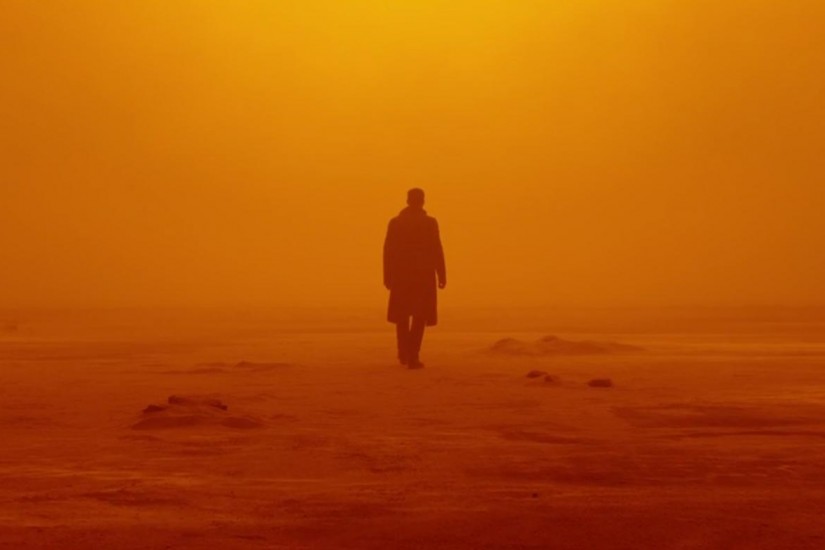The novelty of the original Blade Runner was that it was detective noir in the future, a blurring of genres that, because it burned both ends of the candle, made a lot of light. But it can be easy to overlook how much Western there still was in the original, even latently. The futurity it presupposes is a frontier still advancing into the stars with new and evolved forms of humanity pursuing it, and space is the solution to the inevitability of time. If mortality is a problem for those who are dying—and we all are—then civilization’s manifest destiny will continue, elsewhere, when we’re gone. In its most tacked-on and uplifting-ending, a Blade Runner can ride off into the sunset. But with its pyramids and city-speak, Scott’s Los Angeles was an techno-orientalist tomb, decadent and hopeless; it was left to the unmistakably Aryan replicants to have adventures among the stars.
By Blade Runner 2049, the Western is dead and buried; as we see when Ryan Gosling takes his trip across the border, a fast-draw cowboy is irrelevant in a world of drones. But no one gets their start doing b-reel Westerns or guest spots on Have Gun Will Travel, and the notion that the stars are the next and natural frontier for humanity has been all but abandoned. Star Trek and Star Wars are now backward-looking reruns, and the future recedes into the distance; science fiction is about how the present continues forever. The biggest change between 1982 and 2017 is that we don’t even rememberwhat the future used to look like. If Ridley Scott’s Los Angeles was a poisoned wasteland, humanity’s dead end, Blade Runner 2049 shows us a world which has achieved, by horrible necessity, a dystopic form of sustainability: as in Snowpiercer, humanity’s vermin-fueled continuance is somehow much worse than extinction. But even off-world has become boring and stale; Jared Leto’s excruciating mad scientist-god-king of humanity seems to rule the galaxy but to live on Earth, demanding more and more colonies since the old ones no longer please him. But while Tyrell’s inventions of the replicants, in 1982, made it possible to conquer the stars, Wallace saved humanity by re-organizing its patterns of production and consumption in new and horrible ways. We can no longer solve our problems here by looking there; we have to solve them, or endure them, here.
